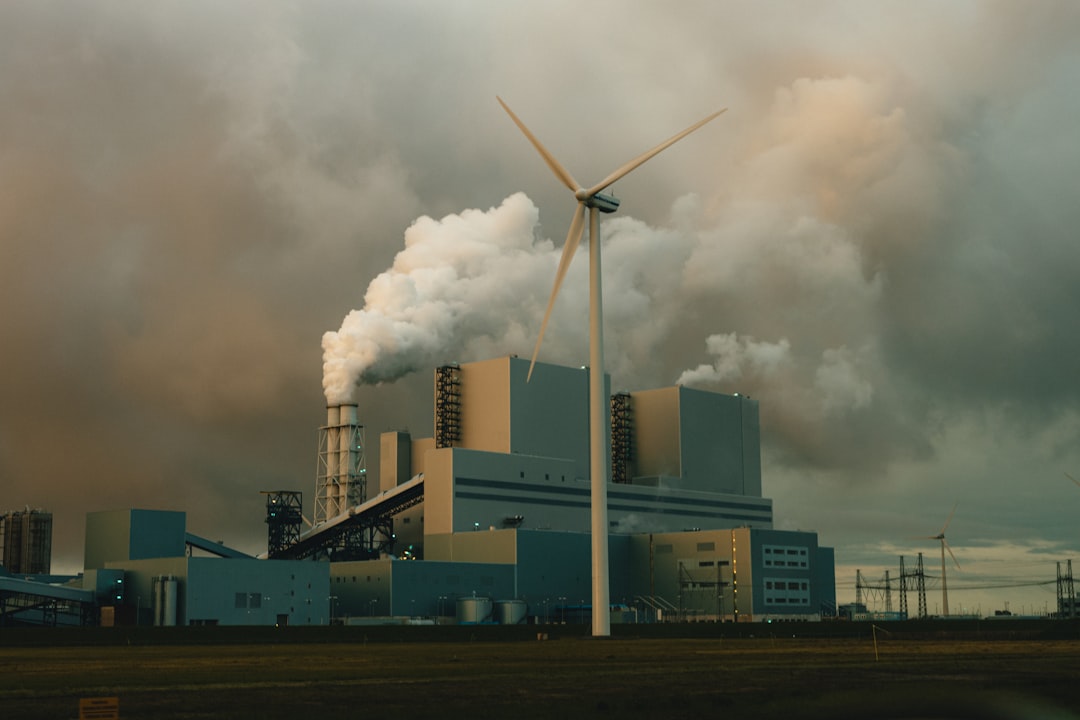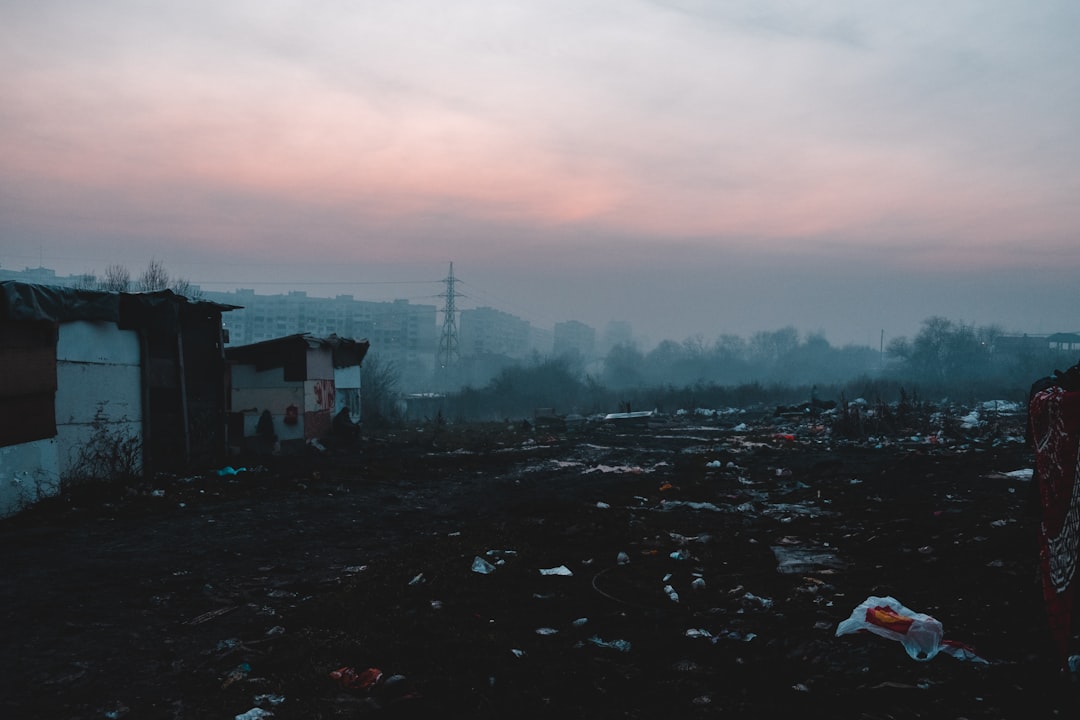In a controversial move that has sparked significant public outcry, Wisconsin Republicans have decided to block the cleanup of PFAS contamination until polluters are granted immunity from legal repercussions.
PFAS, or per- and polyfluoroalkyl substances, are a group of man-made chemicals linked to serious health risks and environmental damage. This decision has drawn widespread criticism from environmental advocates and concerned citizens alike, who argue that prioritizing corporate protection over public health is a dangerous precedent. Although, this is really just keeping in line with the status quo.

Wisconsin’s PFAS Crisis
Understanding PFAS Pollution
PFAS, or per- and polyfluoroalkyl substances, are synthetic chemicals widely used in industrial and consumer products due to their resistance to water, grease, and heat. These chemicals can be found in items such as non-stick cookware, water-repellent clothing, and firefighting foams.
However, the same properties that make PFAS useful also make them persist in the environment and accumulate in the human body over time. As a result, PFAS contamination has been linked to serious health issues, including cancer, liver damage, and immune system dysfunction. The pollution of water sources with PFAS is a growing concern in Wisconsin, affecting both urban and rural communities. Addressing this pollution is critical for safeguarding public health and ensuring a clean environment for future generations.
Health Risks of PFAS Exposure
PFAS exposure poses significant health risks, making their cleanup crucial. These chemicals have been linked to a range of adverse health outcomes. For instance, long-term exposure can lead to various types of cancer, including kidney and testicular cancer.
Additionally, PFAS exposure has been associated with liver damage, which can result in elevated cholesterol levels and potentially lead to more severe liver diseases. The immune system is also vulnerable, with studies indicating that PFAS can reduce vaccine effectiveness and increase susceptibility to infections.
Pregnant women and children are particularly at risk, as exposure can lead to developmental issues, low birth weight, and hormonal imbalances. Given these serious health risks, the need for effective PFAS cleanup in Wisconsin is not just an environmental issue but a vital public health concern.
Environmental Impact in Wisconsin
The environmental impact of PFAS pollution in Wisconsin is profound and far-reaching. These chemicals contaminate water sources, including rivers, lakes, and groundwater, affecting both wildlife and human populations. Aquatic life is particularly vulnerable, as PFAS can accumulate in fish and other organisms, disrupting ecosystems and food chains.
This contamination can also extend to agricultural areas, where PFAS-tainted water is used for irrigation, leading to soil degradation and crop contamination. Consequently, the food supply can become compromised, posing additional risks to public health.
About 90,000 Different Chemical Are Dumped Into Sewers Each Year
I would need to write a twenty volume encyclopedia in order to detail all of the chemicals and the effects of these chemicals on human health and psychology. According to the Sierra Club, somewhere in the neighborhood of 90,000 different man-made chemicals are discharged into our sewers each year. In order to see why we need to completely eliminate chemicals from the loop, we have to understand how they keep harming us residually.
One of the largest sources of residual chemical pollution comes in the form of biosolids, which is just a fancy way of saying sewage sludge. In the United States, sewage sludge is not only composed of human waste but also waste from factories, slaughterhouses, industrial facilities, and other businesses that legally discharge waste directly into the sewage system.
Taxpayers subsidize this because tax dollars pay for the treatment of sewage. In the European Union there is legislation that places the onus on industry to deal with and manage their chemical waste. It is time for America to enact similar legislation. Since politics and money control everything in America. We The People will have to seriously pressure the politicians to hold industry accountable.

Contaminated Beef
In February, 2022, the Michigan Department of Agriculture and Rural Development issued an advisory. Beef from a local farm had high levels of PFOS, which is part of the group of chemicals referred to as PFAS.
The farm had been growing crops to feed their cattle, using biosolids as fertilizer for these crops. This is only one small, yet very clear example where biosolid waste has contaminated crops. Imagine, there are six million tons of biosolid waste being used each year to fertilize crops.
Crops that not only humans eat, but also birds, bugs, ducks, deer, pigs, turkeys, pheasants, quail, cows, sheep, goats, chickens, gophers. Every animal that lives within that ecosystem. Additionally, the wastewater from these farms runs off into groundwater, streams and rivers. So even if you think you are catching a wild “clean” duck, deer, turkey or fish, chances are you are not.
Republican Stance on Cleanup
Immunity for Polluters
The decision by Wisconsin Republicans to block PFAS cleanup until polluters are granted immunity has sparked considerable controversy. This stance effectively prioritizes the protection of corporate interests over public and environmental health. By granting immunity, companies responsible for PFAS contamination would be shielded from legal consequences, undermining accountability.
Critics argue that this approach sets a dangerous precedent, allowing polluters to evade their responsibility for environmental damage. Furthermore, it significantly delays necessary cleanup efforts, prolonging the exposure of communities to harmful chemicals.
Environmental advocates stress that holding polluters accountable is essential for ensuring that they contribute to remediation costs and take preventive measures to avoid future contamination. Granting immunity could discourage companies from adopting safer practices, exacerbating the pollution problem in Wisconsin. This policy decision raises fundamental questions about justice and the role of government in protecting its citizens and natural resources.
Legislative Roadblocks
Wisconsin Republicans have introduced several legislative roadblocks that hinder effective PFAS cleanup efforts. These roadblocks include proposing bills that limit regulatory agencies’ powers and reduce financial penalties for polluters.
By curtailing the authority of environmental agencies, these measures make it difficult to enforce existing laws and implement new regulations aimed at reducing PFAS pollution. Additionally, the legislative push for immunity clauses further complicates the legal landscape, making it harder for affected communities to seek justice and compensation.
This obstructionist approach not only delays cleanup initiatives but also undermines public trust in the government’s ability to protect health and the environment. Critics argue that these legislative roadblocks reflect a broader agenda to prioritize economic interests over ecological and public well-being, leaving Wisconsin residents to bear the brunt of ongoing pollution and its associated risks.

Public Response and Outcry
The public response to the Wisconsin Republicans’ stance on PFAS cleanup has been overwhelmingly negative. Environmental advocacy groups, public health organizations, and concerned citizens have voiced strong opposition, arguing that prioritizing immunity for polluters undermines both justice and environmental stewardship.
Protests and public demonstrations have taken place across the state, with residents demanding immediate action to address the contamination. Social media campaigns and petitions have also gained traction, reflecting widespread frustration and concern. Many people feel that the government is failing in its duty to protect the health and well-being of its citizens.
This public outcry underscores the urgency of the situation and the need for transparent, accountable decision-making. The sustained pressure from the community highlights the growing awareness and demand for effective PFAS regulation and cleanup efforts in Wisconsin.
The Path Forward
Democratic Solutions
Democratic lawmakers in Wisconsin have proposed several solutions aimed at addressing the PFAS crisis effectively and fairly. These solutions prioritize holding polluters accountable and ensuring comprehensive cleanup efforts.
Key proposals include increasing funding for environmental agencies to enhance their capacity for monitoring and regulating PFAS contamination. Democrats also advocate for stricter enforcement of existing environmental laws and the introduction of new regulations to limit PFAS use and discharge. Additionally, they support initiatives to research and develop safer alternatives to PFAS, reducing future pollution risks.
Community involvement is another crucial aspect of their approach, with plans to increase transparency and public participation in decision-making processes. By focusing on accountability, prevention, and community engagement, Democratic solutions aim to protect both public health and the environment, setting a sustainable path forward for Wisconsin.
How to Take Action
Taking action against PFAS pollution in Wisconsin starts with making your voice heard. First, stay informed about local and state legislation concerning PFAS and environmental protection. Attend town hall meetings, participate in public forums, and engage in discussions to express your concerns. Support organizations and advocacy groups dedicated to environmental justice by volunteering or donating. Contact your local representatives to demand stronger regulations and accountability measures for polluters.
Voting is a powerful tool—support candidates who prioritize environmental issues and public health. Additionally, spread awareness through social media and community networks to educate others about the dangers of PFAS contamination. Collective action can drive significant change, ensuring that future policies protect both people and the environment from harmful pollutants. Your involvement can help shape a healthier, safer Wisconsin.

Importance of Your Vote
Your vote plays a crucial role in shaping policies that impact public health and the environment. In the face of the PFAS crisis, electing representatives who prioritize environmental protection and accountability is more important than ever. By voting for candidates who support stringent regulations on pollutants and advocate for comprehensive cleanup efforts, you help ensure that legislative actions align with public interest rather than corporate protection.
Voting is not just a civic duty; it’s a powerful tool for change. It enables you to influence decisions that affect your community’s well-being and the sustainability of natural resources. As elections approach, educate yourself on candidates’ positions regarding PFAS and broader environmental issues. Your informed vote can drive policy shifts that safeguard Wisconsin’s environment and public health, making a tangible difference in the fight against pollution.





